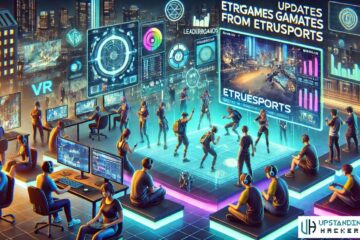Are you a Counter-Strike: Global Offensive (CSGO) player looking to understand the ins and outs of the game’s ranking system? Whether you’re a seasoned veteran or just starting, the CSGO ranking system plays a crucial role in determining your competitive standing within the game.
In this comprehensive guide, we’ll delve into the intricacies of the CSGO ranking system, exploring how it works, the different ranks available, and the factors that influence your rank. We’ll also uncover the benefits and drawbacks of the system, providing expert tips on how you can improve your rank and dispelling common misconceptions.
We’ll explore alternative ranking systems and platforms, offering a holistic view of the competitive landscape within CSGO.
So, if you’re ready to elevate your gameplay and climb the ranks in CSGO, this article is your ultimate resource.
What Is the CSGO Ranking System?
The CSGO ranking system is a crucial feature in CS: GO that determines the skill levels of players and facilitates competitive matchmaking for balanced gameplay experiences.
By assigning a rank to each player based on their performance in competitive matches, the CSGO ranking system serves as a reliable indicator of their skill and expertise in the game.
This not only allows players to gauge their progress and improvement over time but also ensures that they are pitted against opponents of similar skill levels during matchmaking, promoting fair and challenging gameplay.
The ranking system plays a vital role in fostering a competitive environment within the CSGO community, as it encourages players to strive for higher ranks and compete at increasingly demanding levels, thereby contributing to the overall dynamism and excitement of the game.
How Does the CSGO Ranking System Work?
The CSGO ranking system operates through a sophisticated algorithm that evaluates player performance, matchmaking outcomes, and skill progression using the Glicko-2 and ELO rating systems.
This intricate system takes into account not only win/loss outcomes but also factors in the performance of opponents and teammates, to provide a holistic assessment of a player’s skill level. CS2 Matchmaking plays a pivotal role in pairing players of similar ranks and skills, ensuring balanced and fair matchups.
The ELO algorithm assigns a numerical value to players based on their performance, and as they win or lose matches, their ratings are adjusted accordingly. The Glicko-2 rating system further refines this process by considering the volatility of a player’s performance over time, leading to precise rank adjustments.
What Are the Different Ranks in CSGO?
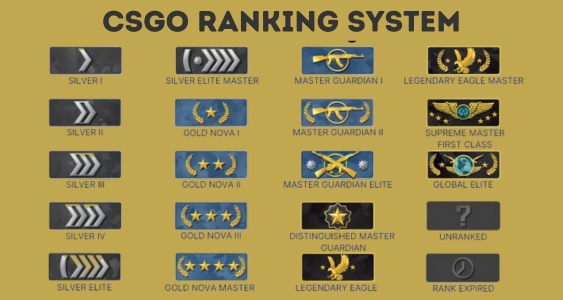
The CSGO ranking system encompasses a wide spectrum of ranks, ranging from the entry-level Silver ranks to the prestigious Global Elite tier, each reflecting varying levels of skill and expertise.
At the lower end of the ranking system, Silver ranks are where many players start their journey. These ranks provide an accessible entry point for newcomers to learn the game’s basics and mechanics.
Moving up, the Gold Nova ranks offer a more well-rounded gaming experience, testing players with more advanced strategies and teamwork.
Then, the Master Guardian ranks are known for their competitive nature, attracting players who have honed their skills and understanding of the game.
The Global Elite tier stands as the pinnacle of achievement, reserved for the most skilled and dedicated players with an exceptional command of game mechanics.
How is Rank Determined in CSGO?
Rank determination in CSGO is based on a combination of factors, including player performance, win-loss ratios, individual skill ratings, and the application of the ELO algorithm and MMR calculations.
The player’s performance in matches plays a crucial role in their rank, with metrics such as kills, deaths, and assists being factored in. Additionally, MMR calculations take into account the quality of opponents faced and the outcome of the matches to adjust the player’s rating.
The ELO algorithm further refines the rankings by considering the skill levels of both the player and opponents, thus providing a more accurate depiction of player abilities and progress.
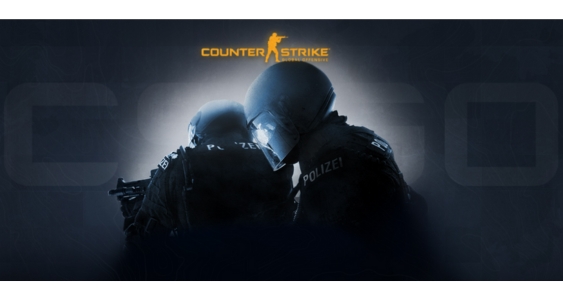
What Factors Affect Rank in CSGO?
Several factors influence a player’s rank in CSGO, including individual performance, win streaks, match outcomes in CS2 Premier Matchmaking, and the competitive landscape across regions such as the USA and Europe.
Individual performance is a critical aspect that directly impacts a player’s rank. Consistently demonstrating skill, strategy, and adaptability in matches demonstrates a player’s capabilities and often leads to a higher rank. Win streaks also play a significant role, showcasing a player’s ability to contribute to consecutive victories and indicating their potential for successful gameplay.
The outcome of matches in CS2 Premier Matchmaking, especially against well-matched opponents, can propel or inhibit a player’s rank progression.
Considering the competitive landscape across regions such as the USA and Europe is crucial. The level of competition in these regions, including the presence of professional teams and highly skilled players, can influence a player’s rank. Regional competitiveness also affects the overall skill level and playstyle encountered by players, contributing to the dynamic nature of CSGO ranking systems.
What Are the Benefits of the CSGO Ranking System?
The CSGO ranking system offers various advantages, including fair and balanced matchmaking, skill-based competitive environments, and a clear progression system based on MMR and skill ratings.
By implementing a sophisticated algorithm, the CSGO ranking system ensures that players are matched with opponents of a similar skill level, fostering a challenging yet equitable gaming experience. This not only enhances the competitive integrity of the game but also encourages players to improve their skills to ascend the ranks.
The clear progression system based on MMR and skill ratings serves as a motivational tool, as players can tangibly track their growth and development over time. This not only instills a sense of accomplishment but also keeps the player base engaged and committed to the game.
The transparent nature of the ranking system further promotes a positive and supportive community, where players are recognized and rewarded for their dedication and expertise.
What Are the Drawbacks of the CSGO Ranking System?
Despite its merits, the CSGO ranking system has certain limitations, including potential issues with smurfing, rank disparities, and occasional inconsistencies in the evaluation of CS2 Ranks, as reported by sources like News Direct.
Smurfing, which involves highly skilled players creating new accounts to play against lower-ranked opponents, not only disrupts fair gameplay but also skews the overall ranking balance. Players often encounter frustration due to significant rank gaps within individual matches, leading to a sense of unfairness.
The reported inconsistencies in CS2 Ranks evaluation raise concerns about the system’s accuracy and reliability, contributing to a lack of trust among the community.
How to Improve Your Rank in CSGO?
Improving one’s rank in CSGO requires dedicated practice, strategic gameplay, and an understanding of the nuances of the Counter-Strike meta, as emphasized by players and experts in regions like New York.
Developing a consistent practice routine is crucial in honing individual gameplay mechanics. Aiming and movement drills, as well as map knowledge, can significantly enhance performance. Understanding the meta involves staying updated with weapon balances, map strategies, and common tactics used by top players. Adapting to the ever-evolving meta is essential for success in ranked play.
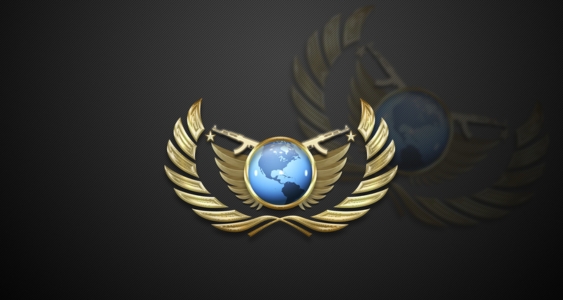
Optimizing Matchmaking Rating (MMR) involves effective communication, adaptability, and teamwork. Partying up with skilled players can also provide a competitive advantage, offering opportunities for synergy and shared strategies.
Practice and Improve Your Skills
Dedicated practice and skill enhancement are fundamental for climbing the ranks in CSGO, with higher-tier players often emphasizing the importance of consistent improvement and adaptability within the Master GuardianRanks and beyond.
Top-tier players stress the significance of mastering movement, aim, and map knowledge, as these are critical attributes for progression. Developing skills such as crosshair placement, recoil control, and game sense is pivotal in advancing through the competitive tiers.
It’s not just about raw talent but about honing techniques and learning from mistakes to continuously evolve as a player. Embracing a growth mindset and staying patient through setbacks is equally crucial for long-term success.
Play with a Team
Collaborating with a coordinated team can significantly impact rank improvement in CSGO, as highlighted by players in the Gold NovaRanks, leveraging the advantages of teamwork and strategic synergy inherent to the ELO algorithm.
When players in CSGO unite with teammates who communicate effectively, share strategies and coordinate their movements, they create an environment that goes beyond individual skill. The collective effort not only enhances the chances of victory but also elevates the team’s and individual ELO ranking.
Optimizing the ELO algorithm relies heavily on consistent performances and wins, and a cohesive team greatly contributes to achieving these objectives.
Understand the Game Meta
A comprehensive understanding of the game meta is pivotal for progress in CSGO ranks, particularly evident in the strategic adaptations and gameplay comprehension necessary for success in the Silver ranks and across different regions in Europe.
Having a profound grasp of the game meta in CSGO enables players to anticipate strategic adaptations and capitalize on meta trends to gain an edge over opponents. In the Silver ranks, where players are refining their basics, cultivating an awareness of map control, economic management, and crosshair placement within the regional variations becomes crucial.
This differs significantly when comparing the European meta to other regions, where distinct playstyles and strategies are prevalent, necessitating a nuanced understanding of these differences to navigate the global CSGO landscape.
Analyze Your Gameplay
Analyzing and critiquing one’s gameplay is a pivotal step towards rank improvement in CSGO, with elite players in tiers like SMFC emphasizing the importance of self-evaluation and strategic refinement within Counter-Strike.
By carefully dissecting one’s in-game decisions, aiming mechanics, and overall performance, players gain crucial insights into their strengths and weaknesses, allowing them to fine-tune their strategies and adapt to different scenarios.
Studying the strategic maneuvers and playstyles of top-tier players provides invaluable learning opportunities for those aiming to climb ranks and become more proficient in CSGO.
What Are the Common Misconceptions About the CSGO Ranking System?
Several misconceptions surround the CSGO ranking system, including fallacies about the sole influence of wins, the efficacy of smurfing, and the viability of solo queueing, as reported by sources and discussions related to CS2 Ranks and Glicko-2.
Contrary to popular belief, CSGO’s ranking system is not solely dependent on wins. While wins do play a significant role, other factors such as individual performance, MVPs, and round impact are also taken into account. This ensures a more holistic evaluation of a player’s skill and contribution to the team.
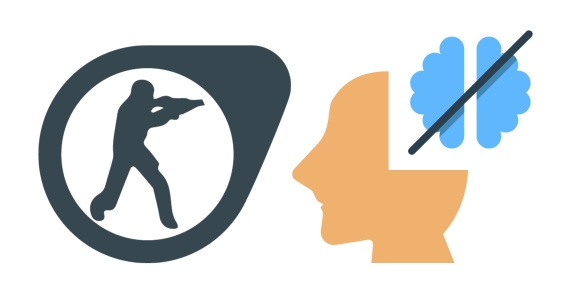
The notion that smurfing invariably leads to an unfair advantage is unfounded. The ranking system is designed to detect outlier performance and adjust accordingly, mitigating the impact of smurfing on overall match competitiveness.
The idea that solo queueing inherently hinders rank progression is a misconception. The ranking algorithm evaluates each player’s performance independently, meaning solo players have equal opportunities for rank advancement as those in a party.
Your Rank is Solely Based on Wins
The misconception that rank is solely determined by wins is debunked by the multi-faceted evaluation criteria employed in CSGO, as evidenced by the considerations of the Glicko-2 system and its impact on player assessments across different regions in Europe.
When assessing a player’s rank in Counter-Strike: Global Offensive, the number of wins is just one piece of the puzzle. The Glicko-2 system, for instance, takes into account a myriad of factors, including the quality of opponents faced, the performance of teammates, and the individual’s consistency in gameplay.
This approach highlights the comprehensive nature of rank evaluation, emphasizing skill and adaptability over sheer win count.
In addition, the Glicko-2 system acknowledges the diversity across CSGO’s player base by considering regional performances. This means that a player’s rank is not solely dependent on global standings but is also influenced by their proficiency within their specific gaming community.
Therefore, a deep understanding of the intricacies of the evaluation process is crucial for players aiming to progress in their CSGO rank and improve their overall gameplay.
Smurfing Will Improve Your Rank
The belief that smurfing guarantees rank improvement is refuted by the complexities of CS Rating assessments, as well as discussions and experiences shared by players and experts in regions like the USA.
While smurfing may initially give a sense of accomplishment as players dominate lower-level matches, it often leads to frustration and a lack of real skill development. CS Rating assessments take various factors into account, including individual performance, teamwork, and consistency over time. The act of smurfing can disrupt the balance of fair competition, impacting the overall gaming experience for both novice and seasoned players alike.
Insights from player discussions reveal that using Smurf accounts frequently results in a skewed representation of one’s true skill level, making it challenging to accurately gauge progress and areas for improvement.
Such practices can also foster an environment of unfair advantage, detracting from the essence of sportsmanship and healthy competition within the CS:GO community.
You Can’t Rank Up Solo Queueing
The misconception that solo queueing hinders rank progression is invalidated by the experiences of players who have achieved significant advancements through Premier Matchmaking and competitive solo play, emphasizing the viability of solo queueing for rank up.
For many players, the solo queueing experience has been a catalyst for individual skill development and growth. The competitive edge honed through solo play can often translate to enhanced gameplay in team settings.
The Premier Matchmaking platform offers opportunities for solo players to showcase their abilities and rise through the ranks, dispelling the belief that rank progression is solely dependent on group play.
The journey of numerous players reflects the potential for substantial advancements achieved through dedicated solo efforts, ultimately reshaping the perception of solo queueing in the CSGO community.
What Are the Alternatives to the CSGO Ranking System?
Several alternatives exist outside the traditional CSGO ranking system, such as the ELO Ranking System, platforms like Faceit and ESEA, and community servers and leagues, offering diverse avenues for competitive gameplay and skill assessment.
Each of these alternatives comes with its own set of features and benefits. The ELO Ranking System uses a mathematical algorithm to assess player skills, taking into account the performance of opponents as well as personal performance.
Faceit and ESEA provide platforms for players to compete in more structured environments, with systems that allow for better matchmaking and more competitive play.
On the other hand, community servers and leagues offer a more grassroots approach, often with player-run tournaments and events that cater to a wide range of skill levels. By embracing these alternatives, players can experience a more diverse and challenging competitive landscape beyond the confines of the traditional CSGO ranking system.
ELO Ranking System
The ELO Ranking System offers a distinct approach to matchmaking and skill evaluation, featuring regional adaptations and competitive frameworks that cater to diverse player communities across Europe and beyond.
One of the key features of the ELO Ranking System is its flexibility in accommodating regional differences in player skill levels and competitive dynamics. This allows for a more targeted and nuanced matchmaking experience, ensuring that players are pitted against opponents who are at comparable skill levels, thereby enhancing the overall competitive environment.
This system takes into account the varying player bases across different regions, acknowledging the fact that the competitive landscape in Europe may differ significantly from that in other regions such as North America or Asia. As a result, it strives to provide a tailored matchmaking experience that reflects the unique dynamics of each region, fostering a more inclusive and engaging gameplay environment.
Faceit and ESEA
Platforms like Faceit and ESEA provide specialized competitive environments, including Premier Matchmaking, catering to the gaming communities in regions like the USA and offering distinct pathways for skill assessment and competitive play outside the traditional CSGO ranking system.
These platforms have gained popularity for their focus on creating regional relevance, providing a platform for gamers to connect with others in their area, and fostering a sense of community and healthy competition. Their emphasis on Premier Matchmaking ensures that players can find high-quality opponents, challenging themselves and improving their skills.
This unique approach sets them apart from conventional matchmaking systems, enhancing the overall gaming experience for both casual and professional players alike.
The platforms offer alternative avenues for competitive play, allowing individuals to showcase their abilities and gain recognition beyond traditional CSGO rankings. This has led to the emergence of a vibrant, engaging environment that continues to attract players looking for a more specialized and rewarding gaming experience.
Community Servers and Leagues
Community servers and leagues present community-driven alternatives to standard CSGO ranks, fostering unique gameplay experiences, competitions, and skill evaluations, as observed through discussions and engagements within the CS2 Ranks community and similar platforms.
These community-centric environments offer players the opportunity to engage in a wide range of gameplay styles, from casual fun to highly competitive matches, creating a dynamic space for players of all skill levels.
Unlike traditional ranking systems, where players are placed based on individual performance, community servers and leagues emphasize teamwork and collaboration, encouraging players to develop strategic and cooperative tactics.
This inclusivity results in a rich, diverse gaming experience, where players can refine their skills through exposure to different play styles and strategies.
FAQs
How does the CS:GO ranking system work?
The CS:GO ranking system uses a hidden ELO system, where players are assigned a certain number of points based on their wins and losses in competitive matches. The more points a player has, the higher their rank will be.
What are the different ranks in the CS:GO ranking system?
There are 18 ranks in the CS:GO ranking system, starting from Silver I as the lowest and going up to Global Elite as the highest. Each rank has a certain skill level associated with it, with Global Elite being the most difficult to achieve.
Can my rank change in the CS:GO ranking system?
Yes, your rank in the CS:GO ranking system is not set in stone and can change depending on your performance in matches. If you consistently perform well, you can move up in rank, but if you underperform, you may drop to a lower rank.
How can I improve my rank in the CS:GO ranking system?
To improve your rank in the CS:GO ranking system, it is important to consistently play and perform well in competitive matches. Communicate with your team, practice your skills, and study game strategies to increase your chances of winning and ranking up.
See Also: Where To Sell And Trade CSGO Skins When Source 2 Releases










